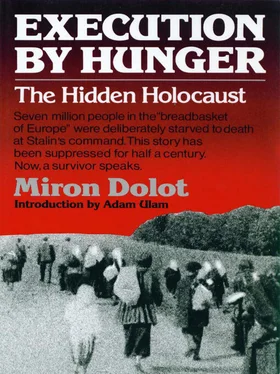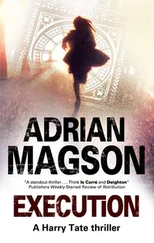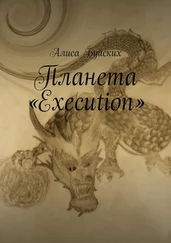“Would you be kind enough to tell me why there are no—or if there are some—why so few of these whatever-you-call-them mares? Why, eh? Would you explain that? No; you cannot! There is nothing to explain. Everything is clear.”
The nervous stableman jumped to his feet, wanting to say something more, then reconsidered, sat down again, and raised his hand. But he was completely ignored. Comrade Cherepin continued:
“And how can segregated and firmly fastened mares ever become whatever-you-call-it?” He rushed past the last words, and went on.
“No, no, a thousand times no! Never!! And the class enemies know this. They know it very well. That is why the mares are separated from the horses; and that is why they are tied firmly in their stalls. This explains the low fertility of our mares, and that is why we don’t have any colts in the kolhosp! That is why we’ll never have enough horses in our kolhosp as long as this condition exists, and as long as these enemies of the people run our stable.”
Comrade Cherepin finished his speech with an air of satisfaction and smug accomplishment. He drank some more water and sat down. As before, there was a complete silence.
The meeting remained in session for several more hours. Only after midnight, when about all of the Party members had given their speeches, made their condemnations, and heaped their abuse on the stableman, did it come to an end. Finally, the leader of the Komsomol read the final resolution. As far as I can recall, it read:
Considering the report of the Party representative, Comrade Cherepin, concerning the instruction of the county Party Organization to start the Horse Campaign throughout the county, we, the members of the Lenin Kolhosp, resolve to include ourselves in the above-mentioned campaign immediately. As we start the Horse Campaign, we do solemnly promise to our Party and its beloved and wise…
The end of the sentence was drowned in loud applause. But the silence was restored, and he repeated: “we promise to achieve a hundred percent pregnancy rate among our mares.”
A storm of applause followed. The resolution was adopted unanimously.
The next day, all the stablemen were relieved of their duties and transferred to field work. The senior stableman was taken to the county seat, where he vanished.
The life of the horses was changed radically. In Comrade Cherepin’s words, “to give the mares a chance to get pregnant,” all horses were left in their stalls untied. This was an explicit order of Comrade Cherepin.
Although changes were brought about in the collective farm as a result of the Horse Campaign, the horses’ difficulties had not been solved—at least, not at that time. The village jesters speculated that the horse problem remained in its disgraceful state because the Party and government instructions continued to ignore an important detail. No one in the Party seemed to recognize the importance of stallions.
ONE MORNING, upon reporting as usual to the collective farm labor office for my daily work assignment, I was told that I had to drive the kolhosp chairman to the county seat. Without delay, I harnessed a horse to a farm cart, and as soon as the chairman was ready, we started our journey.
My passenger, Comrade Mayevsky, was an outsider. He had been sent to us by the county government. He was a large man in his early forties. His face was round and fat, and he was always clean shaven. We never discovered what he did prior to coming to our village, but it was quite obvious that he did not know much about village ways. His most prized possession was his revolver which he carried in such a way that half of it was always on display. In his office, he kept the revolver on his desk, and toyed with it whenever a visitor seemed to disagree with him.
Just after we left the village, Mayevsky fell asleep in the back of the cart, so our journey was a very quiet one.
We stayed in the county center only a short time, and by noon we were well on our way back to the village.
It was a beautiful day; the sun was shining brightly. A light breeze was blowing and larks were singing. As we rounded a curve in the road, a man came into my view. He was walking slowly in front of us toward the village. As I got closer, I recognized him: it was Vasylyk, a distant relative of mine and a neighbor.
This unexpected meeting created a difficult problem for me. Only a few days before, militiamen had visited our village, searching for him. Now there he was, only a few hundred feet away from me. In a couple of minutes I would overtake him, and I knew he would start a conversation with me. This would mean certain death, for in my wagon was the most ruthless official in the village.
I tried to slow down, but it didn’t help for Vasylyk was walking too slowly. All of a sudden, I saw a narrow road on the right side of the road. On a sudden impulse, I swung the horse into it. I was sure Vasylyk would take the next field path to the left, since that was the shortest way to my home.
But now the road was very rough, and the rattling and bumping awoke Comrade Mayevsky almost immediately. I pretended that I had fallen asleep. This made him furious. He kicked me in the back with his boot, and ordered me to turn back to the main road.
I made another attempt to avoid Vasylyk by setting the horse into a gallop. But in spite of the speed with which we passed him, Mayevsky spotted him. He ordered me to stop the horse, and leaped from the wagon. Vasylyk saw him, realized his danger, and disappeared into the wheat. Mayevsky ran after him. Then I heard a shot; then another; a scream; and a third shot….
Mayevsky returned to the wagon, his face glowing with satisfaction. “He wanted to escape,” he said, wiping off his gun. Then, for some reason, he aimed the gun at the horse’s head. There was a happy look on his face as he did this. “He made a big mistake,” he continued, speaking more to himself than to me. “He did not know what it means to deal with a Red Partisan. Well, now he knows….”
Putting his gun into its holster, he boasted: “Hundreds of counterrevolutionaries have tried to escape me, and all of them are dead now!” Then he looked at me.
“So, so,” he sneered through his teeth. “So, so, you wanted to help him.” Then he climbed back into the wagon, and after a moment or two, he was again apparently sound asleep.
Vasylyk’s fate had actually been sealed on that February night when hundreds of our villagers were arrested and banished from the village. His father, although a poor farmer, was labeled a kurkul and, consequently, found himself and his family, Vasylyk included, among the arrested.
About a year had passed, when one day we received an anonymous letter mailed from the Arctic seaport of Arkhangelsk, informing us that Vasylyk had been shot to death while trying to escape from the concentration camp.
Then, one June night, as we were about ready for bed, we heard a knock on the door and a voice from outside. After a moment of hesitation, I opened the door. A miserable-looking figure stepped inside. There was no doubt in my mind that it was Vasylyk. Shaking my hand, he tried to smile. He looked totally exhausted. His clothing was torn and dirty, and his feet were wrapped in rags.
“We heard you were shot,” my mother exclaimed on seeing Vasylyk. “And what happened to your mother and father, and to all…?”
“I’m dead, indeed,” he interrupted, trying to joke. “I’m only a ghost. Have you ever seen a ghost?”
The story he told us was truly a ghastly one. I shall retell it exactly as he told it to us.
That February night was cold and it was snowing. The column of sleighs loaded with the arrested farmers left the village under the guard of militia and soldiers of the security forces armed with rifles and machine guns.
Читать дальше












